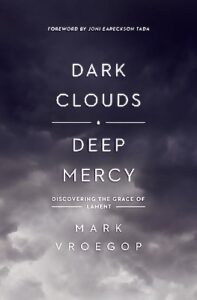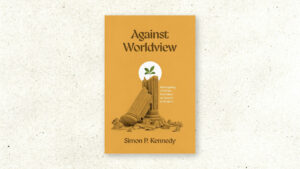Don Carson explores aspects of theology and its connection to preaching. He focuses on how these different theological disciplines can enrich and inform the practice of preaching.
Male: What do you think the big issues of the next 10 years will be?
Don Carson: I’m neither a prophet nor the son of a prophet, and I work for a non-profit organization. The justification/New Perspective one on Paul is now no longer a biggie in academic circles. There have been too many books refuting it. It’s still a biggie in a lot of ecclesiastical reform circles, so that’s going to be with us for another 20 years, but it’s declining.
The openness of God stuff that came out of Greg Boyd and Clark Pinnock and others is going to continue its swath, but I don’t think it’s going to make a lot of waves. The emerging church stuff? It was a bigger splash 10 years ago, 15 years ago. It’s already losing its push, partly because there have been enough observations now about the kind of people the emerging church will attract.
They set themselves up as attracting outsiders, knowing better how to communicate the gospel to outsiders. There are a few of them that do, but there are very few. The overwhelming majority of them are, in fact, attracting disgruntled young social conservatives. The people who are doing the evangelism amongst the yuppie biblical illiterate postmoderns are people like Mark Driscoll on the one hand and Tim Keller on the other; it’s not the emerging church folk. So the emerging church folk are going to be dead in the water in 20 years. You’re not even going to hear of them.
I’m just trying to assess some of the movements that are already perking along at various strengths. I think you’re going to find, for good and ill, a lot more stuff on Christians and ecology, Christians and being green, and so on. That one’s going to be around, for good and ill, with all kinds of complex layers. How do you relate to Gaia?
People are going to start talking more and more about creation theology and the like, often at the expense of creation and cross theology, how you work these things out in terms of leaving the right emphases on the cross, the resurrection, and stewardship within that kind of framework.
There’s a new understanding of tolerance around. I’ve just about finished a book on it. The old tolerance presupposed that you could disagree with somebody, but so long as you insisted that they have a right to speak you were judged tolerant. The new tolerance, in certain domains, says that you don’t have the right to criticize somebody.
Male: Is this your distinction between tolerance and toleration?
Don: No, I usually avoid that one, but between the new tolerance and the old tolerance I’ve made the distinction pretty often. This new tolerance, in my view, is very intolerant, for all kinds of complex reasons. So I think that in the name of tolerance we’re going to see more active persecution in all kinds of fronts.
If homosexuality becomes primarily an issue of civil rights rather than an issue of religious liberty to express an opinion then you will see more ministers thrown in jail in the name of tolerance. Those sorts of things are still coming down the pike. They haven’t hit us with a tidal wave yet. They’re still coming. It’s all over the Western world. Two of the American 50 states have now passed laws regarding hiring at a religious institution like a seminary or even a church. They haven’t been tested in court yet; I have no idea how they’ll come out.
If you’re dealing with people, let’s say on a seminary staff, who are teaching theology and who think homosexuality is wrong then it’s all right not to hire somebody who disagrees with that because that’s part of the confessional system. On the other hand, if you’re hiring an accountant or somebody to cut the grass then you don’t have the right to insist that they agree with this position because they don’t have any teaching function.
It’s going to be tested in the courts. There’s no doubt about that. Already Al Mohler at Southern Seminary, which is the largest seminary in the world, has said, “We will fight that one all the way down to bankruptcy.” I don’t know how it’s going to go. I have no idea. These questions are rising in Europe. That one’s a biggie. You’re not going to duck that one. To my mind, you don’t want to be in a position where you seem to be anti-homosexual. You don’t want to do that. Some of us try to keep low profiles precisely because we do have homosexual friends.
“The Most Practical and Engaging Book on Christian Living Apart from the Bible”
 “If you’re going to read just one book on Christian living and how the gospel can be applied in your life, let this be your book.”—Elisa dos Santos, Amazon reviewer.
“If you’re going to read just one book on Christian living and how the gospel can be applied in your life, let this be your book.”—Elisa dos Santos, Amazon reviewer.
In this book, seasoned church planter Jeff Vanderstelt argues that you need to become “gospel fluent”—to think about your life through the truth of the gospel and rehearse it to yourself and others.
We’re delighted to offer the Gospel Fluency: Speaking the Truths of Jesus into the Everyday Stuff of Life ebook (Crossway) to you for FREE today. Click this link to get instant access to a resource that will help you apply the gospel more confidently to every area of your life.




















